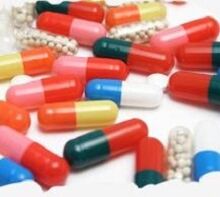
In modern medicine, prostatitis is considered to be the most common urinary system disease. There are many reasons for this disease, the root of which lies in bacterial infection and human lifestyle.
Realizing chronic form of relief and getting rid of acute pain is a difficult process, including a series of procedures and measures.
For this reason, it is important to take certain drugs for the treatment of male prostatitis, which are prescribed when the first signs of the disease appear. We will discuss which modern drugs on the market are the most effective and which are fast on the market.
It is worth noting that this disease is sometimes mistaken for another pathology of prostate adenoma. Moreover, although the etiology and development mechanisms of these diseases are different, in some cases, their treatments have similar characteristics.
Signs of male prostatitis
In men, the first signs of prostatitis begin with unpleasant and painful urination. There is a need to get up 1-2 times every night to go to the bathroom. After a period of time, the perineum and the upper part of the pubic bone will experience shooting pain or pulling pain, and the penis and anus may be painful.
Urination can become quick and painful, and the urine can become cloudy. Pain may occur during bowel movements. It happened that the patient noticed the release of drops of white discharge in the morning. Body temperature rose to 38 degrees.
Prostatitis is an insidious disease in modern urology. Men prefer to stay silent for a long time and hide their symptoms, and only see a doctor when the pain becomes unbearable. This is a reckless way of health. The consequences of this behavior can be very complex, including infertility and organ inflammation.
It is also worth noting that, based on symptoms, prostatitis has signs of other dangerous diseases, such as cystitis, benign tumors of the prostate, and bladder cancer.
What are the drugs for treating prostatitis?
Specialists can prescribe one (or more) of the following drugs based on the patient's physical condition:
- Suppositories for rectal administration. Such drugs can improve metabolism.
- injection. Promote the rapid penetration of drugs into the body and stimulate the immune and vascular system.
- Non-steroidal anti-inflammatory drugs (NSAIDs)-prevent the development of inflammatory reactions.
- instill. With this type of treatment, the medicine is delivered directly to the destination by the doctor.
- Micro-grouting. They are considered a folk method. Herbal infusions and decoctions are used as medicines, which are based on temperature and efficacy. It is performed before going to bed, and the prostate after the operation should not be overworked and hypothermia.
- tablet. In most cases, the treatment of prostatitis with tablets involves the use of antibacterial drugs with a wide range of effects. Especially when a specific pathogen has not yet been identified.
- Alpha-adrenergic blockers-have a similar effect by blocking alpha-adrenergic receptors in the sympathetic nervous system.
Each drug has its own unique characteristics, and may be suitable for one patient, but not for another patient. The most effective way to treat prostatitis is for doctors to select drugs specifically for the patient according to the patient's individual characteristics and the characteristics of the course of the disease.
antibiotic
If it is determined that prostatitis is caused by bacteria, antibiotics should be prescribed. First, they choose drugs with a wide range of effects, that is, drugs that can be destroyed by several microorganisms at the same time.
Generally speaking, antibiotic drugs are represented by three types of drugs:
- Fluoroquinolones;
- tetracycline;
- penicillin.
Usually in treatment, suppositories for rectal use are used (they are inserted into the anus). Such drugs can effectively relieve pain and have antibacterial effects. The injection solution can penetrate the body tissues to the greatest extent. They have a systemic effect, stimulating the immune system and the vascular system.
painkiller
This group of drugs makes life easier for many patients. However, their dosage must be checked with your doctor.
Alpha Blockers
A group of drugs that relax the smooth muscles of the urethra (urethra) and bladder neck to promote better urine flow.
The role of alpha blockers is not to treat prostatitis, but to eliminate the uncomfortable symptoms caused by the disease. In this case, the symptoms are the development of acute or chronic urinary retention.
Muscle relaxants
Their effect is similar to alpha blockers, but they target the perineal area, which will increase during prostatitis. Reduce pressure in the pelvic area and relieve pain.
Drugs that improve blood circulation
For any form of disease, the destruction of blood circulation is always detected, which leads to stagnation and does not allow the tissues of the organs to recover. Therefore, in complex treatments, drugs that improve blood circulation must be used.
Phytotherapy
Based on natural herbs. They reduce the edema and inflammation of the prostate, prevent stagnation, and restore the flow of physiological fluids. Preparations based on pumpkin seeds, vine palm fruit and sabal are considered popular.
Vitamins
Taking vitamins is necessary to strengthen the body's immune system, and the immune system will be greatly affected during prostatitis. The chronic course of the disease strongly affects the protective function of a person, so vitamins are combined with the main medication.
Effective drugs for treating prostatitis
Regardless of the cause of the inflammation of prostate adenoma, it is impossible to choose the best drug for treating prostatitis to treat all men. Because an antibacterial drug, even a drug that is at least three times effective, cannot help patients with parasitic infections, and vice versa.
There are many effective drugs for treating prostate inflammation, but you cannot prescribe it yourself after reading the reviews, even if there are no contraindications at all.






























